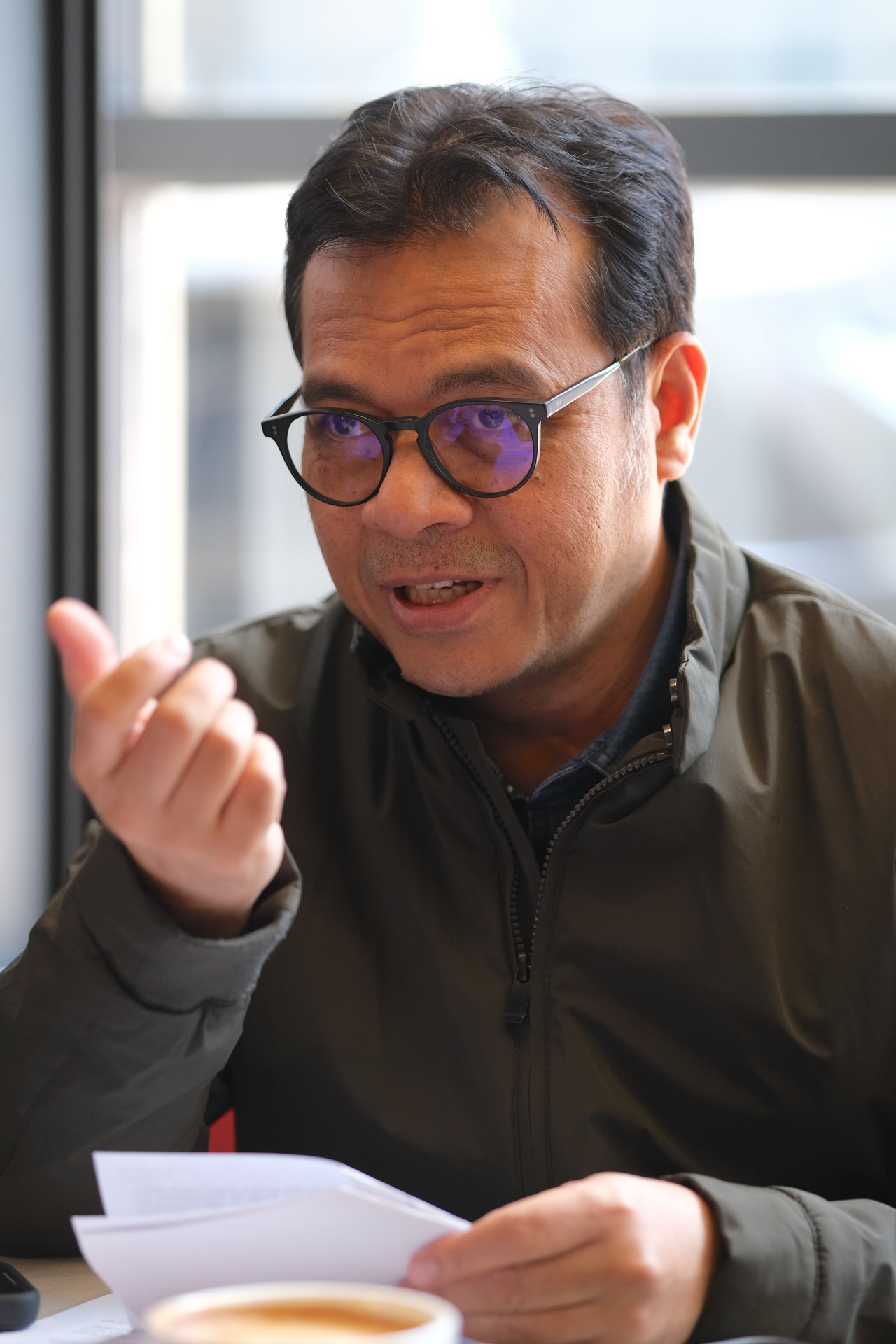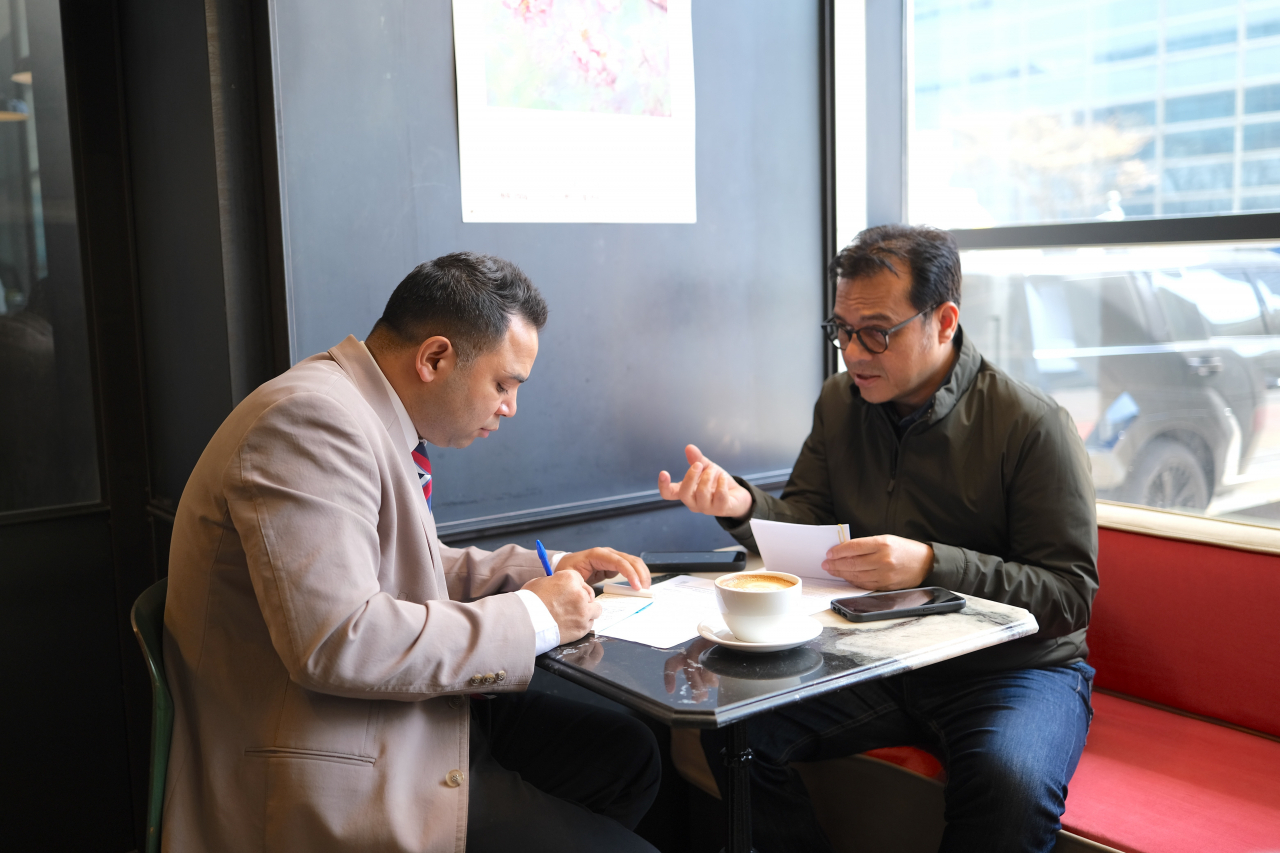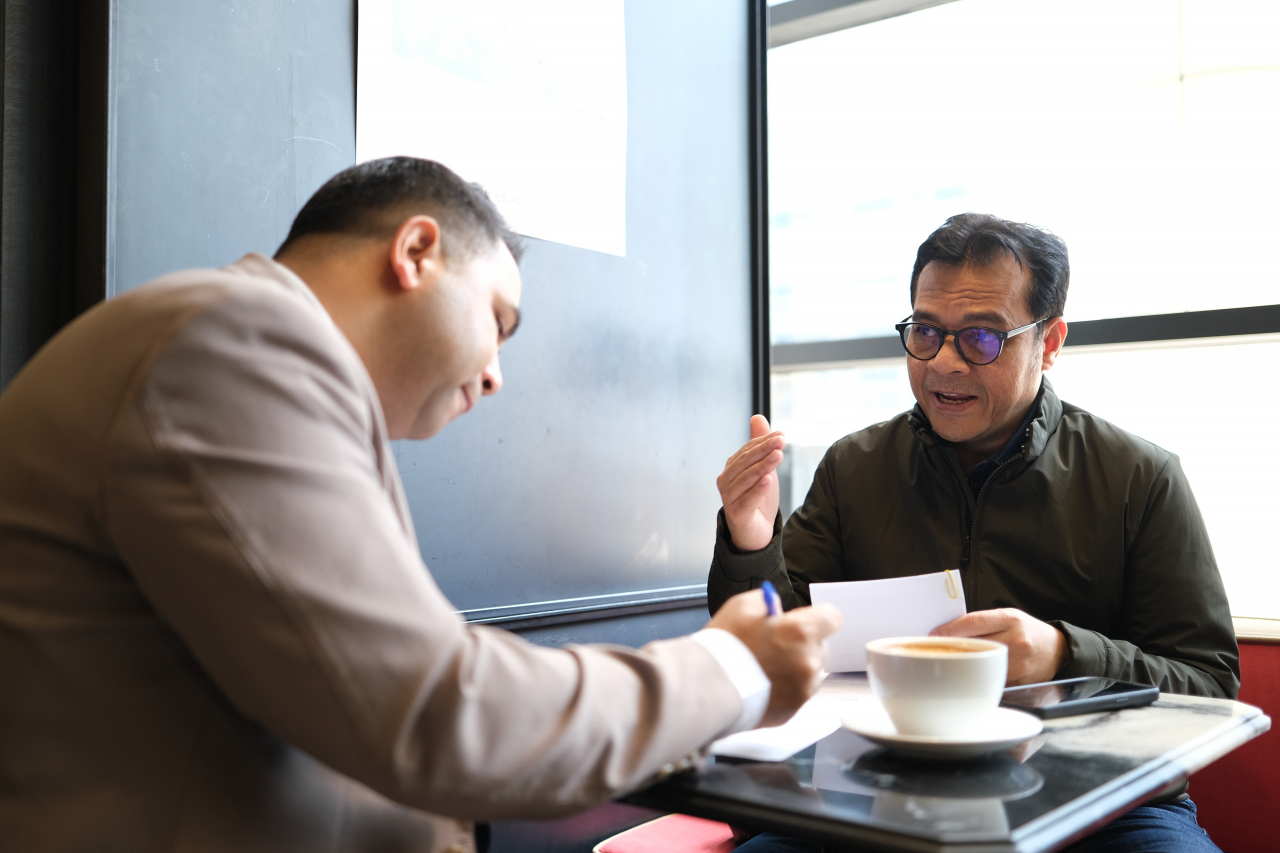 |
Nezar Patria, the Indonesian vice minister of communications and informatics speaks in an interview at COEX Convention & Exhibition Center in Gangnam-gu, Seoul on March 18. (Indonesian Embassy in Seoul) |
Nezar Patria, the Indonesian vice minister of communications and informatics, called for a bilateral partnership with South Korea to bridge the global artificial intelligence gap.
The influence of Western values perpetuates an AI divide and leads to the concentration of economic and social benefits in specific regions of the Global North, he said, citing the 2023 World Economic Forum report.
The report underscores the potential of AI to boost economic growth while noting the geographical concentration of its benefits in the Global North.
“AI sometimes wields a certain value from the Western perspective, so when it produces hallucinations or bias, it could bring us to discrimination and misunderstanding,” he said.
If adopting Asian values into AI, such conflicting perspectives caused by the technology divide can be addressed, he added.
“To address the AI divide, it is essential to propose an Asian value as an alternative for developing AI,” Patria told The Korea Herald.
 |
Nezar Patria, the Indonesian vice minister of communications and informatics speaks in an interview at COEX Convention & Exhibition Center in Gangnam-gu, Seoul on March 18. (Indonesian Embassy in Seoul) |
“This approach would ensure that AI systems are developed from an Asia-centric perspective, overcoming bias and aligning AI with Asian values,” he added.
He called for a more democratic dialogue regarding AI regulation to include countries from the Global South in discussions dominated by major powers like the US, Europe, and China.
“We want a more democratic dialogue so that this regulation can be discussed together among the global world and global sources,” added Patria.
When asked about potential security threats posed by AI amid wars and conflicts, he said that governments have to discuss AI technology that may be destructive to human beings.
“That's why we need global AI regulation.”
Regulation of autonomous weapon systems is urgently needed in order to save the world from a possible AI war in the future, according to Petria.
"We are very open to strengthening the collaboration with South Korea,” he underlined.
Patria acknowledged the absence of a comprehensive blueprint for artificial intelligence regulation and stressed the critical necessity of bridging the gap between the Global North and South, including ASEAN countries.
 |
Nezar Patria, the Indonesian vice minister of communications and informatics speaks in an interview at COEX Convention & Exhibition Center in Gangnam-gu, Seoul on March 18. (Indonesian Embassy in Seoul) |
“With the strength of Indonesia's potential technology resources, and with the advancement of South Korea's capability in developing this AI, we can collaborate to make the most robust cooperation in this technology,” he said.
“By working together and incorporating these Asian values, Indonesia and South Korea can become leaders in developing AI that is not only technologically advanced but also ethically responsible and culturally relevant for the global South," he hoped.
Meanwhile, the vice minister also applauded his government's collaboration with the Korea Industry Intelligence Association (KOIA) to enhance digital technologies like IoT, big data, and AI. Indonesia aims to accelerate economic transformation through an innovation-based partnership with KOIA, aligning with its 2025–2045 Long-Term National Development Plans targeting the world’s fifth-largest GDP.
The cooperation also supports the Golden Indonesia 2045 vision, emphasizing innovative economic development and technology transfer to strengthen the manufacturing sector.
“This momentum can be elevated further by adhering to the spirit of the special strategic partnership and increased participation from more stakeholders from Indonesia and South Korea, Patricia Said.
Nezar Patria is a seasoned journalist currently serving as Indonesia's Vice Minister for Communication and Informatics. With a background as Editor-in-Chief at The Jakarta Post and holding high-ranking positions at the Press Council, State-owned Enterprises Ministry, and Pos Indonesia, Patria also served as Deputy Chief Editor at CNN Indonesia.com before his tenure as Editor-in-Chief at The Jakarta Post.





![[Herald Interview] How Gopizza got big in India](http://res.heraldm.com/phpwas/restmb_idxmake.php?idx=644&simg=/content/image/2024/11/20/20241120050057_0.jpg)

